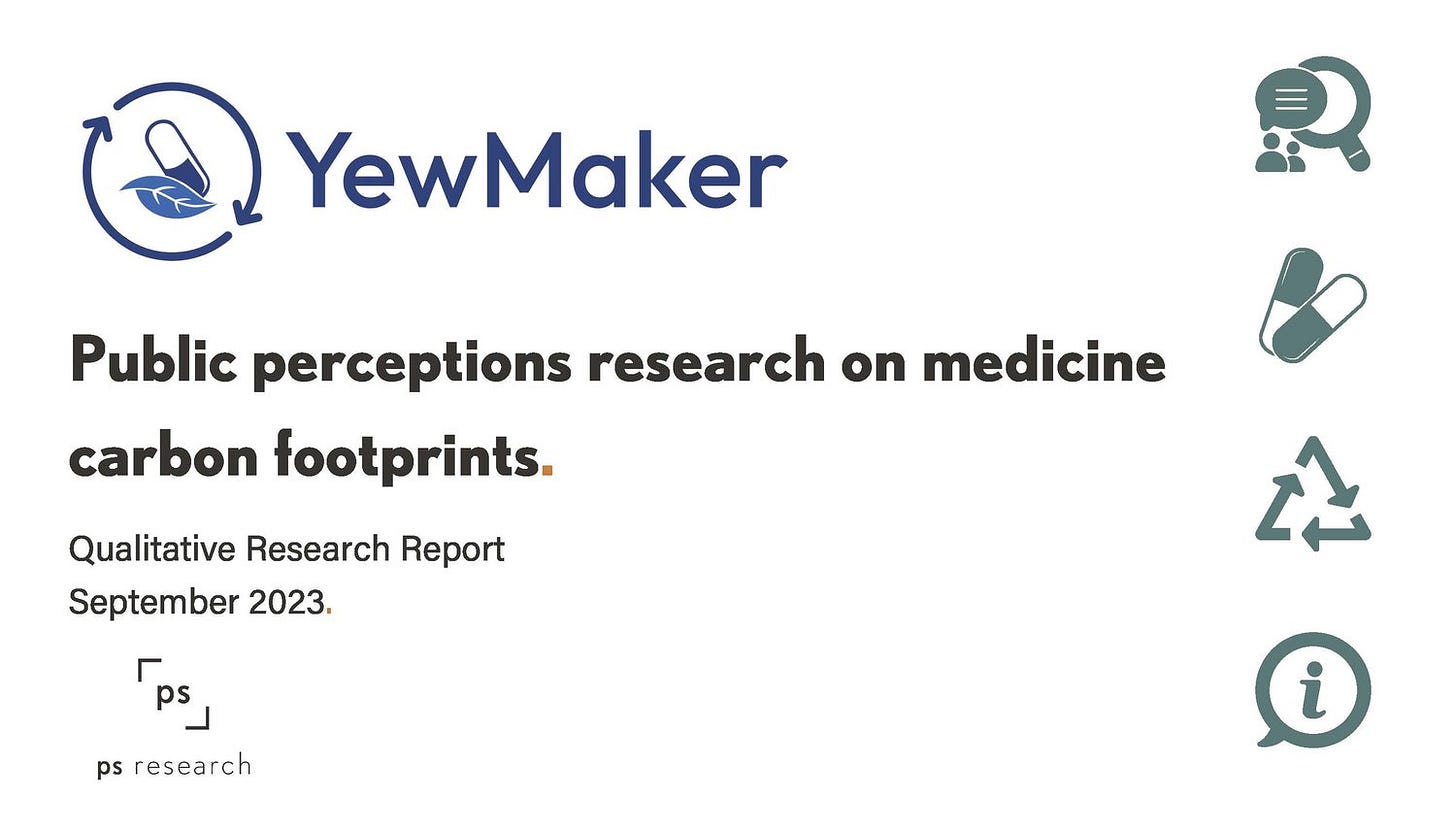Medicine carbon footprints - what do people want?
New research shows people want pharma companies to disclose the carbon footprint of their products, but are less certain if they want the information themselves.
Net zero healthcare - what will it take?
More than 60 healthcare systems have committed to achieving net zero carbon emissions. Given the profound impact of the climate crisis on health and well-being, it's no surprise healthcare sectors are taking their environmental responsibilities seriously.
But this task is far from simple. Amid rising backlogs, increasing costs, and many varied pressures, it is essential to carefully consider the potential consequences of embracing this extra obligation.
To do this, we need to understand the choices and trade-offs. We need to search for solutions that can address emissions and alleviate other pressures. We need to ensure prioritising environmental issues doesn't inadvertently create or exacerbate other problems.
And, importantly, we must understand the concerns and expectations of the population.
How do people want healthcare to navigate this new responsibility?
Medicine emissions - a critical contribution
Reducing carbon emissions related to medicines must be prioritised in healthcare Net Zero strategies, because pharmaceuticals account for a large proportion of emissions: 25% in the NHS.
For a few medicines, such as anaesthetics and inhalers, there has been success in measuring, stratifying, designing, and implementing carbon reduction strategies.
However, these instances remain exceptions, primarily because so little information about medicine-related emissions is available.
Public sentiment on medicine carbon footprints
To gauge public sentiment on this topic, we conducted an online survey. We received responses from 1304 individuals from four countries, the UK (312 participants), U.S. (308), Australia (380), and France (304).
We asked them the following questions:
What did we learn?
People care about healthcare emissions
There was remarkable consistency across the four nations, particularly in relation to how they wanted health systems and medicine manufacturers to act.
84% of people felt it was important for medicine manufacturers to disclose the carbon footprint of their products.
84% of people felt it was important for health systems to try to reduce the carbon footprint of the medicines.
84% of people felt it was important for health systems to choose medicine suppliers with a lower carbon footprint, if the costs were the same.
A smaller, but still sizeable percentage (73%) felt it was important for doctors to have access to carbon footprint information when deciding which medicines to prescribe.
I've had a doctor say to me, I'm prescribing you this medication and we'll try that one first because it's cheaper. I thought that was a brilliant idea. [..] I think its very important that a doctor can have a list of drugs and look at which ones are cheaper and which ones are going to have a bigger impact on the environment. They need to look at all these angles. (Male, 65+, from Public Perceptions study)
Personal preferences vary
People had more diverse opinions when asked if they personally wanted information about the carbon footprint of the medicines they were taking.
52% did want the information.
13% did not want it.
27% didn’t mind.
8% didn’t know.
To explore this further we commissioned qualitative research with 1-to-1 interviews to delve deeper into the reasons behind people's choices. Please read the full report - it contains many observations that we have found interesting and useful.
Some key takeaways from the research:
Very few people had previously considered the environmental impact of medicines.
People were positive about including the carbon footprint rating on over-the-counter (OTC) medications as it enables more informed choice.
Clear and well-timed public communication will be key to addressing any concerns.
Solutions to drive change
At YewMaker, we have been developing MCF Classifier, a suite of data-driven solutions that provide standardised, user-friendly medicine carbon footprints that will enable carbon-informed medicines use, and prioritisation of carbon-reduction interventions. We will be sharing more on MCF Classifier later this year.
The substantial contribution of pharmaceutical emissions to the overall healthcare carbon footprint, combined with the lack of accessible data, has driven interest and support for our work.
It's encouraging to see that our commitment resonates with the views of patients and the public, who overwhelmingly support the health sector's commitment to reducing the carbon footprint of medicines.
This mission, and the mission of Net Zero healthcare, is not just a responsibility, it's a shared commitment. It's what healthcare owes to society, and it's what the public rightly expects from healthcare.




